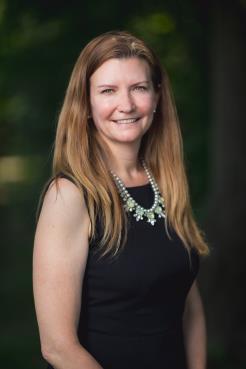IN CHAMBERS WITH THE HON. JUDITH C. ENSOR: LIVING IN THE MOMENT By Matt M. Paavola
Any lawyer who has ever appeared before Judge Judith C Ensor will have a distinct recollection of the experience. She processes the facts and the law at breakneck speed. The casual litigant is constantly trying to keep up with her. I suggested to Her Honor that some might perceive it as impatience, as she peppers oral argument with her quick summations and observations. Not so, reacted the Judge. Her mannerisms are dictated by her thorough preparation and her awareness that time is money and money is time. She knows someone is paying for the lawyers and she wants to be sensitive to the clients picking up those tabs. Best practices call for the trial judge to be fully prepared and to get to the point of decisionmaking quickly and efficiently. She deflected any notion about her brilliance, and attributed her courtroom demeanor to extensive preparation and awareness of the present moment. Upon reflection, that made good sense to me. I was able to look back on to some of my own experiences and realize that Judge Ensor lives in the moment, but wants to keep the pace moving out of consideration for the parties. Still, it is a good thing I brought my recorder to the interview because, yet again, I found myself tagging along! Unsurprisingly Judith C Ensor was an excellent student. She was born on a farm in Baltimore County and found her way to undergraduate school at St Lawrence University in Canton, New York where she excelled. She had no problem being admitted to THE ADVOCATE
what in 1988 was known as the University of Maryland School of Law. There she served on law review, graduated magna cum laude and addressed her class at the graduation ceremony. Judge Frederic Smalkin, of the federal bench, known for his intellectual prowess, recognized talent when he saw it and snagged her right out of law school. After one year she made her way to clerking in New Hampshire. Yes, you read that correctly. Why there? Aware of her fading opportunity to live in the moment with her grandparents who resided there, she was able to use her ample credentials to get hired by the highest court in that state where, coincidentally, she had the opportunity to brush elbows with Judge David Souter before he was appointed to the Supreme Court and concomitantly fulfill that desire to spend quality time with her grandparents. From there she landed at Whiteford Taylor and Preston in 1990. Given the choice of their locations, she chose Towson because there would be greater opportunity to hone her litigation skills. That she did under the 15 year tutelage of Mr. William Whiteford himself. After the 2000 acrimonious Gore-Bush election debacle, Judge Ensor was so “struck” by the orderly transition of presidential power, once boxing gloves were lowered, that she was inspired to become “part of the solution” to help advance the democratic process; she put her name in for the bench. As customary for this rising star, she sped through the nomination process, made the short list, and got the nod from then Governor Robert Ehrlich. She was sworn in on November 28, 2005 and has lived in the moment ever since. Judge Ensor considers it a highest priority that parties and jurors in her courtroom enjoy a positive experience. She wants them to sense that she is all in, giving that dispute on that day her undivided attention. The goal is for litigants to have confidence in the judicial process, win or lose. The Judge likes to pronounce her rulings in plain English to facilitate
Page 14
May 2021











